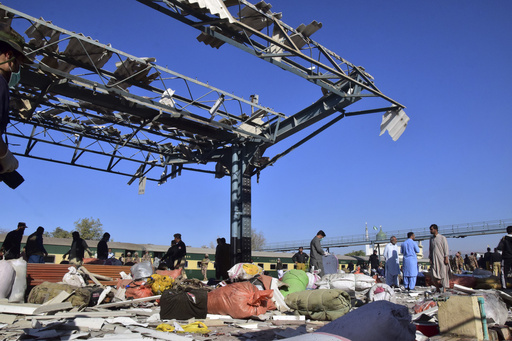
QUETTA, Pakistan — On Monday, Pakistan Railways announced the suspension of all train operations to and from Balochistan, a province that has recently experienced significant unrest following a deadly suicide bombing at a train station. This tragic incident over the weekend resulted in the deaths of 26 individuals, including military personnel and railway employees. The suspension of services is anticipated to last for four days, as cited in a statement released by the railway authorities.
The attack occurred on Saturday at the Quetta train station, during a busy time when around 100 passengers were waiting to travel to Rawalpindi, a major garrison city. The Baloch Liberation Army, a separatist group, has claimed responsibility for the bombing, which also left at least 62 individuals injured, according to official reports.
In response to the attack, the provincial government has declared a three-day mourning period to express solidarity with the victims’ families. Chief Minister Sarfraz Bugti emphasized that security measures are being increased, and declared that efforts would be made to retaliate “with full force” against those responsible for the violence. This statement was made following a meeting with the Interior Minister, Mohsin Naqvi, who visited Quetta on Sunday for a situational briefing.
Naqvi’s officials indicated that the government is prepared to implement “decisive actions to eliminate terrorists” and will support Balochistan’s local government in combating ongoing terrorism challenges. The train service is crucial for the economy of Balochistan, facilitating the movement of people and goods daily across the region.
The suicide bombing on Saturday marked the most lethal attack in the area since August, when a series of coordinated strikes by separatists resulted in more than 50 fatalities among passengers, police, and security personnel throughout Balochistan. The province is characterized as Pakistan’s largest yet least populated, rich in oil and minerals, and is home to the ethnic Baloch minority community, who assert that they endure systemic discrimination and exploitation by the national government.
Balochistan has been at the epicenter of a prolonged insurgency, with multiple separatist factions carrying out attacks primarily targeting security forces in their pursuit of autonomy. Additionally, a variety of militant groups operate within the province’s borders. Chinese nationals engaged in infrastructure projects connected to China’s Belt and Road Initiative are also often targeted by these groups. This initiative funds extensive developments, including power plants, roads, railroads, and ports, enhanced by China’s ambition to increase its influence globally.
Recently, a suicide bomber linked to the BLA attacked a convoy carrying Chinese workers near Karachi’s main airport, resulting in the deaths of two Chinese individuals and injuries to eight more. Authorities have reported the apprehension of the mastermind behind this assassination in a subsequent raid in Balochistan.
